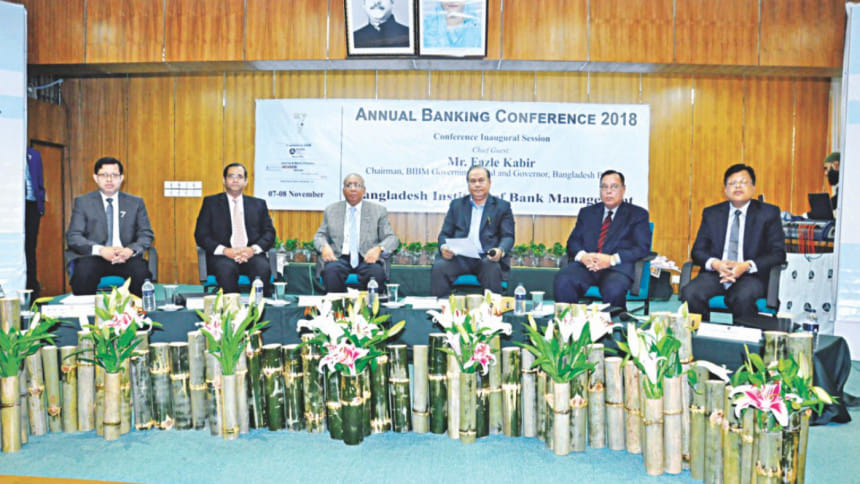Control by a few detrimental to banks

Ownership of a number of banks by a few individuals and families has contributed to the deterioration of corporate governance in the banking industry and erosion of competitiveness of local lenders, a study said.
The country's financial sector has recently seen a drastic monopolisation in the banking industry, which could lead to detrimental consequences for the overall competitiveness in the sector, according to a research paper of the Bangladesh Institute of Bank Management (BIBM).
"In the process, bankers, businessmen and politicians join forces in an unholy trinity that engages in unscrupulous activities," it said.
The paper, titled 'Governance and Competitiveness: An Economic Analysis of the Banking Sector of Bangladesh', was authored by Fahmida Khatun, executive director of the Centre for Policy Dialogue, and Syed Yusuf Saadat, research associate of the think-tank.
Saadat yesterday presented the paper at a banking conference organised by the BIBM at its auditorium in Dhaka.
In recent years, the banking sector has been plagued by a plethora of problems, which include non-performing loans, financial crimes and bank heists.
The situation has worsened further as businesses have set their sights on taking over banks.
"In 2017, a single business group gained control of more than seven private banks. Following this development, there were major changes in the top management of these banks," Saadat said.
Last year two private banks had multiple directors from the same family, while another commercial bank had six directors from a single family -- a situation that has undermined governance in the financial institutions.
The research also found that there was a weak regulatory framework, another factor that made the corporate governance in the banking sector vulnerable.
Domination of individual investors, limited transparency, weak disclosure and poor institutional control are some other major challenges facing the banking sector.
The paper pointed out poor bankruptcy laws, a lack of shareholder participation and political interference as significant obstacles to attaining good governance.
"The power of social elites also came to the fore in other studies, which said certain families tend to dominate bank ownership and act as an impediment to fairness, accountability and transparency."
There is now a pressing need for an independent regulatory body or commission for the banking sector of Bangladesh to prevent the repeated collusion between businesses, banks and the government, it said.
"Otherwise, most governance issues such as transparency and accountability will continue to be merely a box-ticking exercise," Saadat added.

 For all latest news, follow The Daily Star's Google News channel.
For all latest news, follow The Daily Star's Google News channel. 



Comments